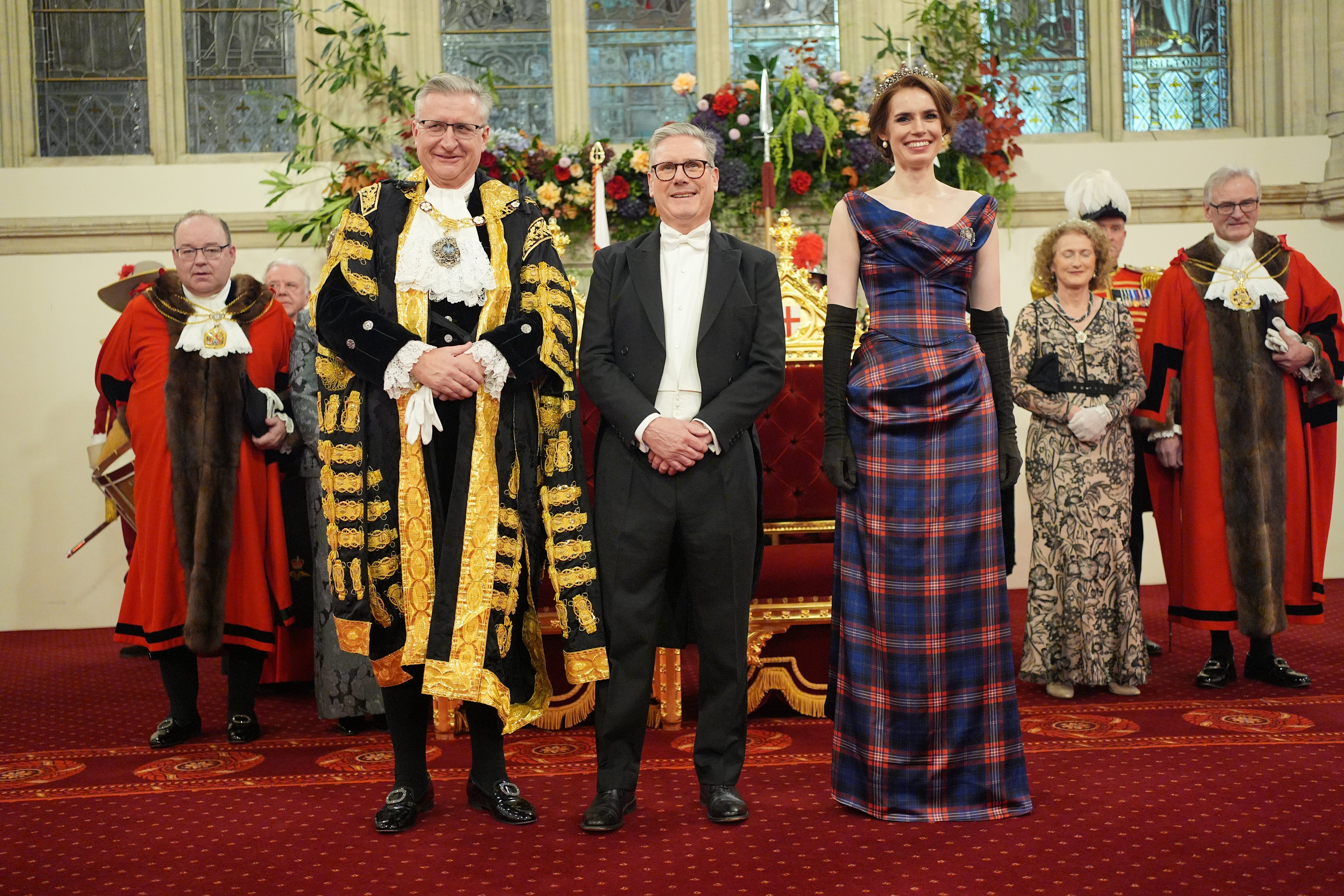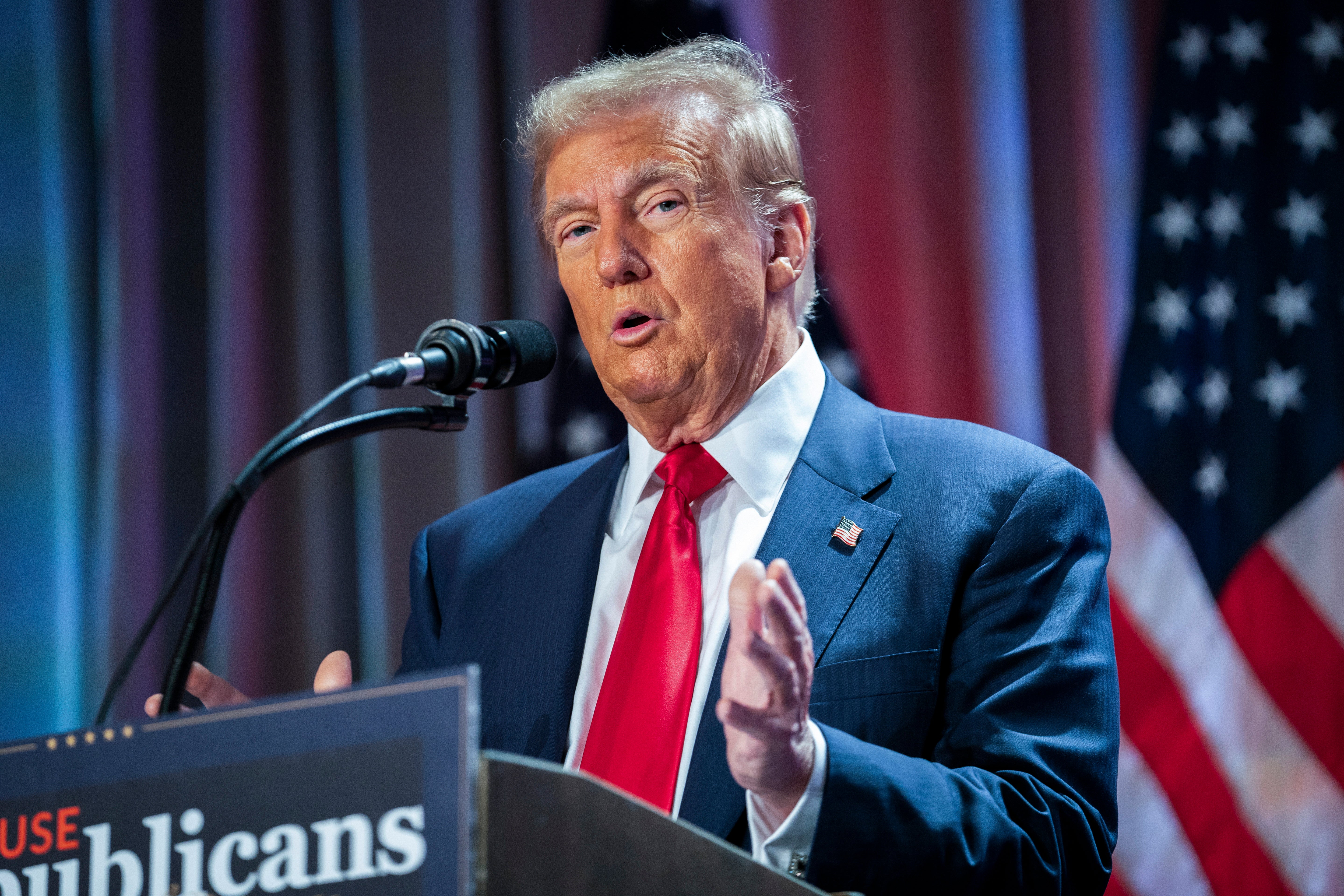Starmer praises Trump as he rejects calls to choose EU over US
The prime minister gave his first big foreign policy speech since the election of Donald Trump as he addressed the Lord Mayor’s Banquet at Mansion House
Your support helps us to tell the story
From reproductive rights to climate change to Big Tech, The Independent is on the ground when the story is developing. Whether it's investigating the financials of Elon Musk's pro-Trump PAC or producing our latest documentary, 'The A Word', which shines a light on the American women fighting for reproductive rights, we know how important it is to parse out the facts from the messaging.
At such a critical moment in US history, we need reporters on the ground. Your donation allows us to keep sending journalists to speak to both sides of the story.
The Independent is trusted by Americans across the entire political spectrum. And unlike many other quality news outlets, we choose not to lock Americans out of our reporting and analysis with paywalls. We believe quality journalism should be available to everyone, paid for by those who can afford it.
Your support makes all the difference.Sir Keir Starmer has rejected demands that he make a choice between a trade deal with the US and closer relations with the EU in the wake of the re-election of Donald Trump to the White House.
The prime minister has been posed a Brexit conundrum amid fears that Mr Trump’s plans to introduce tariffs and instigate a trade war will force Britain to choose between striking a trade deal with the incoming US president and continuing to pursue closer ties with the EU in a planned reset of Britain’s relationship with the bloc.
With Mr Trump also understood to be ready to pull the plug on support for Ukraine, and threatening to withdraw funding for European defence if Nato allies do not pay more money towards it, Sir Keir is also being pushed to pursue closer integration with European allies on defence.
But addressing the Lord Mayor’s Banquet at Mansion House, he made it clear that he believes the choice being posed is a false one and that he can achieve closer relationships with both allies.

The prime minister told the audience: “I want to be clear at the outset: against the backdrop of these dangerous times, the idea that we must choose between our allies, that somehow we’re with either America or Europe, is plain wrong. I reject it utterly.”
Referring to Labour’s part in the establishment of Nato in 1945, he added: “Attlee did not choose between allies. Churchill did not choose. The national interest demands that we work with both.”
He went on: “This is not about sentimentality: it is about hard-headed realism. Time and again, the best hope for the world, and the surest way to serve our mutual national interest, has come from our two nations working together. It still does. The fabric of our nations has been woven together so that our prosperity today – our leadership in tech, AI and more – are intertwined.”
He also had warm words for the incoming 47th president of the US: “When President Trump graciously hosted me for dinner in Trump Tower, I told him that we will invest more deeply than ever in this transatlantic bond with our American friends in the years to come.”
But turning to the EU, he said: “And we will rebuild our ties with Europe, too. Because, I’m sorry to say, the shocking legacy this government inherited in so many areas – from the nation’s finances to the state of the NHS – extends beyond our shores.”

The prime minister made it clear that he believes Mr Trump will not abandon Ukraine, despite appointments to the incoming president’s cabinet indicating that he plans to end financial and military aid to the country.
“There’s no question it’s right we support Ukraine. But we must also be clear that it is deeply in our self-interest. I would encourage everyone here to stop and think for a moment about what it would mean to us, to our continent, to the world, if Russia wins. What would it mean for our values – for democracy, commerce, and liberty?”
On a day when his government announced a new defence industrial strategy but delayed announcing a timetable to achieve the target of 2.5 per cent of GDP being spent on defence, the prime minister called on other countries to pay their fair share.
“It is vital that all European nations step up to protect our shared future. We will set out in our strategic defence review how we are going to modernise our armed forces to make us more secure at home, and strong abroad. And we will maximise our investment by working with others, like our partnership with Italy and Japan to build the next generation of fighter planes.”
Join our commenting forum
Join thought-provoking conversations, follow other Independent readers and see their replies
Comments